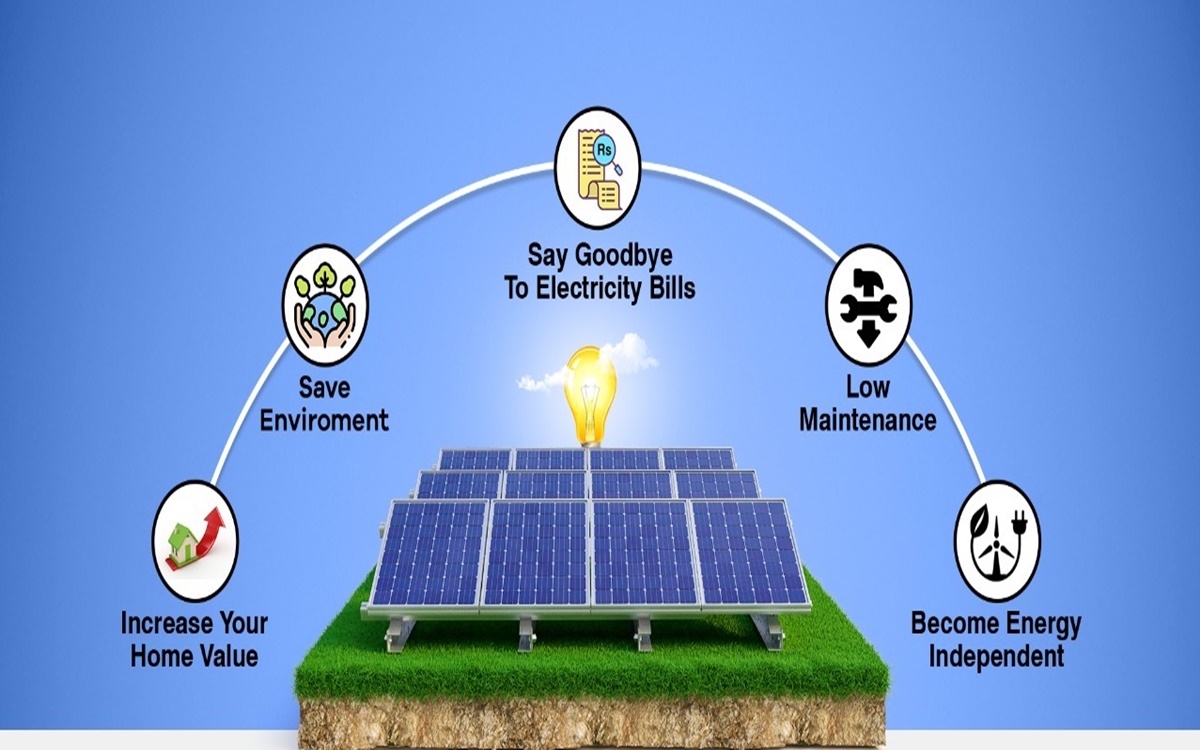The Benefits of Solar Panels
Welcome to our comprehensive guide on the benefits of solar panels. In this article, we will explore the numerous advantages of using solar panels for generating electricity. Solar panels have gained immense popularity in recent years due to their ability to harness renewable energy and contribute to a sustainable future.
Lower Energy Costs
Solar panels offer a significant advantage by reducing your monthly energy bills. By harnessing the power of the sun, solar panels generate electricity that can be used to power your home, reducing your reliance on traditional energy sources. This can result in substantial savings over time, especially as electricity prices continue to rise.
Environmental Impact
One of the most compelling reasons to invest in solar panels is their positive impact on the environment. Solar energy is clean, renewable, and emits zero greenhouse gases during operation. By utilizing solar panels, you can significantly reduce your carbon footprint and contribute to mitigating climate change.
Energy Independence
Another key benefit of solar panels is the opportunity to achieve energy independence. By generating your own electricity, you become less reliant on the power grid and utility companies. This can be particularly advantageous during power outages or emergencies, as you will still have access to electricity when others may not.
Long-Term Investment
Investing in solar panels is a wise long-term decision. While the upfront cost may seem significant, solar panels have a lifespan of 25-30 years and require minimal maintenance. Over time, the savings on energy bills can outweigh the initial investment, making solar panels a financially sound choice.
Incentives and Tax Benefits
Many governments and local authorities provide incentives and tax benefits to encourage the adoption of solar panels. These incentives can include tax credits, rebates, and grants, which can significantly reduce the overall cost of installing solar panels. It is essential to research and take advantage of these incentives to maximize your savings.
Increased Property Value
Installing solar panels can also increase the value of your property. Homes equipped with solar panels are highly attractive to potential buyers due to the long-term cost savings they offer. Studies have shown that properties with solar panels sell faster and at higher prices than those without, making solar panels a valuable investment.
Job Creation
The solar industry has experienced substantial growth in recent years, leading to the creation of numerous job opportunities. By investing in solar panels, you contribute to the expansion of the renewable energy sector and support job creation in your community. This helps stimulate the local economy and promotes a sustainable future.

Solar panels offer a multitude of benefits, ranging from cost savings to environmental sustainability and energy independence. By harnessing the power of the sun, you can reduce your carbon footprint, lower your energy costs, and contribute to a cleaner and more sustainable world. Investing in solar panels is a wise decision that not only benefits you financially but also supports the global transition towards renewable energy sources. Take advantage of the incentives available, and start reaping the rewards of solar energy today.
Frequently Asked Questions about Solar Panels
1. What are the benefits of solar panels?
Solar panels have several benefits:
They help reduce electricity bills as they generate free energy from the sun.
They are environmentally friendly, producing clean and renewable energy.
They can potentially earn you money through feed-in tariffs or net metering.
They require minimal maintenance and have a long lifespan.
They increase the value of your property.
2. How do solar panels work?
Solar panels work by converting sunlight into electricity through the photovoltaic effect. The panels are made up of solar cells that absorb photons from the sun, generating a flow of electrons and creating an electrical current.
3. Are solar panels suitable for my home?
Solar panels can be installed on most homes, as long as there is enough roof space with proper sun exposure. It is recommended to consult with a professional installer to assess your home’s suitability.
4. How much do solar panels cost?
The cost of solar panels can vary depending on factors such as the size of the system, quality of panels, and installation fees. On average, a residential solar panel system can cost between $10,000 to $30,000.
5. What is the payback period for solar panels?
The payback period for solar panels typically ranges from 5 to 15 years, depending on various factors such as the cost of installation, electricity rates, and available incentives or rebates.
6. Do solar panels work during cloudy days?
Yes, solar panels can still generate electricity on cloudy days. While their efficiency may be slightly reduced, they can still produce a significant amount of power as long as there is daylight.
7. Can solar panels be used to power my entire home?
Yes, solar panels can be used to power your entire home. However, the number of panels required will depend on your energy consumption and the availability of sunlight in your area.
8. Are there any government incentives for installing solar panels?
Many governments offer incentives to promote the use of solar panels, such as tax credits, grants, or rebates. These incentives can help reduce the upfront cost of installation.
9. How long do solar panels last?
Solar panels are designed to have a lifespan of 25 to 30 years. However, they can continue to generate electricity beyond that period, albeit at a slightly reduced efficiency.
10. Can I install solar panels myself?
While it is possible to install solar panels yourself, it is highly recommended to hire a professional installer. They have the expertise and knowledge to ensure the panels are installed correctly, maximizing their performance and safety.




